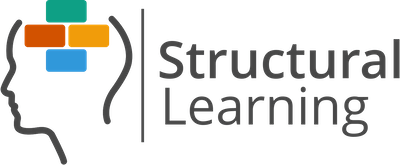Metalearning through Co-Constructivism
Whilst carrying out an action research project, with auditory dyslexic students, it became evident that several of the students already had a good understanding of strategies which supported their learning. By bringing together groups of cross-age students with dyslexia, this knowledge was then enhanced through the action research methodology. As a result of their collaborative teamwork, dialogue and sharing of practical strategies, their understanding of how they learned best was clarified. The process of learning to learn, that is metalearning, can be aided by co-constructivist opportunities such as these, where a range of issues, including goals, feelings, social relations and the context of learning are covered. Metalearning means standing back from the learning content and evaluating the effectiveness of the processes involved. The students became more aware of these issues as they researched and developed strategies, along with creating their own set of guidelines, or ‘tips’, for teachers and teaching assistants to support dyslexic students’ learning. The students demonstrated they were fully aware of the need to be multi-skilled and adaptable for life ahead, beyond school. Additionally, they displayed a determination and allegiance to improve learning and make school life genuinely better for future dyslexic students.
Students as Co-Researchers and Reflective Learners
As a result of the students acting as co-researchers, they reflected upon their learning, through discussion and trialling strategies, which were then adapted to improve their skills and ability. In turn, this process was found to be motivational, strengthening their self-esteem and resilience. The students were keen to take on an active role in their learning, rather than being passive consumers. The research process became a collective, self-reflective enquiry with the aim of making the findings public in school, as an addition to helping one another. The research findings made a significant contribution to whole-school understanding of the complexities and possibilities of student consultation for improving teaching and learning. It demonstrated that when given the right opportunities, students can be good advocates for their own learning and may be the best people to identify how they learn.
Dyslexia Club and Learning Communities
Providing dyslexic students, with the opportunity to share knowledge and strategies within a safe, dynamic environment, proved to be a rewarding experience for the students. They developed a positive sense of self and achievement, through increase of responsibility and new skills, from being actively creative in planning and carrying out research, on behalf of other students. Following the research, a weekly after-school Dyslexia Club was formed, which contributed to a Weekly Bulletin, aiding whole-school understanding of the condition, as well as providing support for the students themselves. Parents of the students noted the impact of the club too, on their child’s development, aspirations and well-being. Other research groups were launched in school (e.g., Anti-Bullying), with students leading on the research questions. This move highlighted how students and teachers are well-placed to reflect on emergent theories of education and practice in their own situations and make improvements based upon personal experience, within the bounds of their control and structure – learning to learn together. Furthermore, students can offer their teachers much thoughtful, constructive commentary on life and learning in school.
Time to Listen:
Following the pandemic, the significance of schools and learning communities for sharing ideas and knowledge cannot be underestimated. Students have desperately missed these powerful experiences of working together to learn. When they are ready to talk…it will be important to listen.
If anyone would like more detailed information about this research, please contact Dr Gill Bainbridge:
gill_bainbridge@hotmail.com








